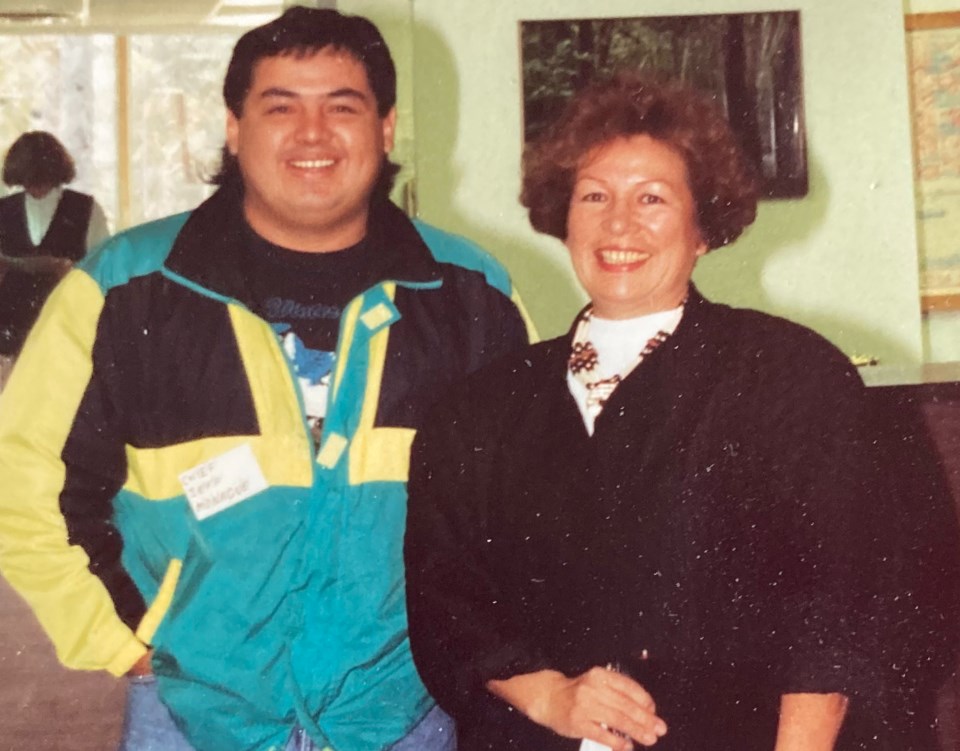One of my mentors growing up was the late elder, Merle Assance Beedie. I acknowledge her in my language as Merleban (Merlebun).
It is customary to affix the suffix “ban” (bun) to a person’s name once that person has passed into the spirit world. It is an acknowledgement that their spirit has now become an ancestor. It is one’s final rite of passage.
Merleban was wise and carried herself well as a teacher of younger souls like me and I would seek her counsel on many things. She never turned you away. That’s what good teachers, good elders do. She has moved on now and has become a good ancestor. I strive to do the same by doing the things she taught me.
One of the teachings that she passed onto me is the story of how Canada came to be named.
Mewzha (Meh-wi-zhah) long ago, when the first explorers came to the land of the Anishinaabek they created alliances and treaties with us. The explorers were keen to learn what these new (to them) lands were called by our people.
One of our Ogemaawag (Oh-geh-maw-wag) Chiefs, waved his arms out before him in a clockwise fashion and turned to all four directions and said, “Kinade” (Kih-nah-deh) “Everything that is in my heart.” That is what we called it.
Kinade came to be anglicized as Canada and remains that way today. It is a word gifted from one of the original languages, passed on through breath, born from this land.
When Merleban told me that story, you could sense the pride she had for this knowledge that she held and shared of our land: Kinade.
By the time she was born, Canada had already supplanted its hold on Indigenous people throughout Kinade. The people were no longer free to hunt and fish to sustain themselves as promised by the non-Indigenous governments through treaty.
In fact, their rights to hunt and fish became outlawed by the Canadian government as they passed legislation to keep our ancestors from the land. Merleban’s family members were incarcerated if they dared harvest food within their ancestral territories. Hence, they went hungry in Canada.
In Canada, legislation known as the Indian Act was created. Lands were set aside for Indians. They called them Reserves. Under these laws (still in place today) Indians could not actually own the land. Under the Indian Act, Reserves, what remained of Kinade, belonged to Canada (and still do today). The ancestors were confined to these Reserves.
As a child, Merleban and her family members were taken far away from their Reserves and placed into residential schools. She told me stories of the pain and anguish she endured there.
Merleban had already learned the story of her ancestors by that time. She had learned of how they had lived on Kinade for thousands of years and how the land was theirs to look after and preserve for seven generations to come. She learned that when it came to be called Canada, everything changed.
As a teen, Merleban returned to her Indian Reserve after years of not being allowed to live there while she was in residential school. As an adult she became a nurse and married a non-Indigenous man. By doing so, under the laws of Canada’s Indian Act, she ceased to be an Indian. She lost her Indian status.
As a child in residential school, Canada had tried to kill the Indian in her. And finally, as an adult, they took away her right to be one. It’s no wonder she had pined for this place called Kinade — the utopia of her ancestors. It sure beat what it had become.
I tell this story as we reflect on Canada Day. A day when the Canadian public struggled with their identity (evident by the many types of flags that were waved in Ottawa).
It was a day when Indigenous people struggled with Canada’s ongoing treatment of them under the Indian Act and the losses that they have endured since. It was during this moment of reflection that Merleban returned from the spirit world to teach me once more. And for that and all of her teachings, I am forever grateful. It is stories like hers that need to be told.
That name invokes song.
That name invokes pride.
Kinade: “Everything that is in my heart.”
Canada? Not so much.
Jeff Monague is a former Chief of the Beausoleil First Nation on Christian Island, former Treaty Research Director with the Anishnabek (Union of Ontario Indians), and veteran of the Canadian Forces. Monague, who taught the Ojibwe language with the Simcoe County District School Board and Georgian College, is currently the Superintendent of Springwater Provincial Park. His column appears every other Monday.
